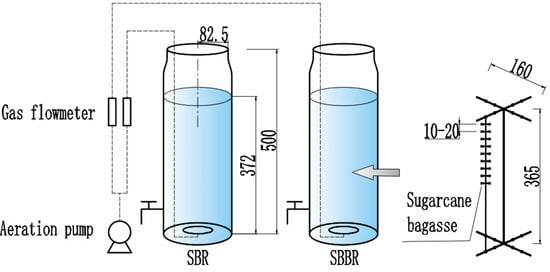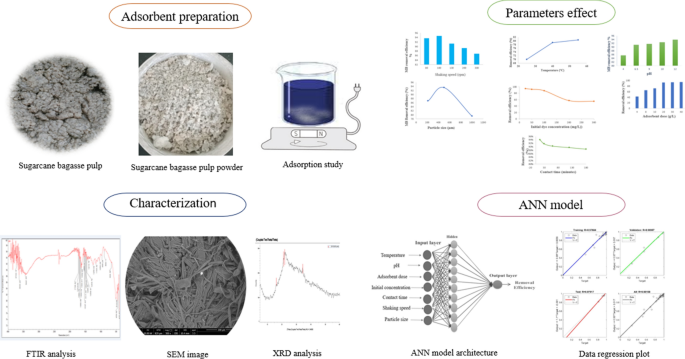Why Brands Are Investing in Products From Sugarcane for Sustainability
Why Brands Are Investing in Products From Sugarcane for Sustainability
Blog Article
Discover the Cutting-edge Advantages of Products From Sugarcane for Sustainable Living
Sugarcane has actually emerged as a pivotal source in the mission for lasting living. Its diverse applications extend eco-friendly product packaging, renewable power, and healthier food options. As industries seek green options, sugarcane's convenience uses encouraging remedies. However, real potential of sugarcane expands beyond its current usages. Exploring its innovative advantages could disclose new paths towards a much more lasting future. What various other opportunities might this impressive plant hold?

The Surge of Sugarcane as a Sustainable Source
As worldwide recognition of environmental concerns grows, sugarcane has become a famous sustainable source. This versatile plant supplies an array of advantages that add to environmentally friendly techniques. Sugarcane is a renewable energy, with the ability of thriving in diverse climates while taking in co2, therefore reducing greenhouse gas discharges. Its rapid growth cycle permits regular harvesting, causing a constant supply of raw material.Additionally, sugarcane farming frequently needs much less water compared to other crops, making it a reliable option in water-scarce areas. The byproducts of sugarcane, such as bagasse and molasses, can be repurposed for various applications, reducing waste and promoting circular economic situation concepts. Developments in agricultural techniques have led to even more sustainable farming techniques, additionally improving sugarcane's environmental account. As consumers progressively look for sustainable options, sugarcane sticks out as a sensible alternative for those dedicated to decreasing their environmental footprint.
Biodegradable Packaging Solutions
Just how can naturally degradable packaging solutions change the way consumers come close to sustainability? By using sugarcane-based products, these cutting-edge options use a compelling option to typical plastics. Eco-friendly product packaging made from sugarcane disintegrates naturally, markedly reducing land fill waste and greenhouse gas exhausts. As customers come to be significantly knowledgeable about their environmental impact, the need for sustainable packaging remains to rise.These sugarcane-derived items not only serve sensible objectives yet likewise align with eco-conscious customer values. They give a substantial means for businesses and individuals to add to a round economic situation, promoting resource effectiveness and decreasing ecological impacts. Additionally, as sectors adopt biodegradable choices, they promote a society of sustainability that reverberates with a growing demographic seeking liable choices.In essence, eco-friendly packaging remedies from sugarcane stand for an essential step ahead in sustainable practices, encouraging customers to make environmentally friendly decisions without compromising comfort or high quality.
Renewable Energy Generation From Sugarcane
A substantial part of renewable resource generation can be stemmed from sugarcane, showcasing its convenience beyond conventional agricultural uses. Sugarcane biomass, consisting of bagasse and leaves, is a potent resource for bioenergy manufacturing. This biomass can be exchanged biofuels such as ethanol, which acts as a cleaner alternative to nonrenewable fuel sources. Additionally, the combustion of sugarcane byproducts creates vapor and electrical energy, giving an energy resource for sugar mills and nearby communities.The growing of sugarcane also adds to carbon sequestration, as the plants absorb carbon dioxide throughout their development cycle. By making use of sugarcane for power, waste is reduced, and lasting methods are encouraged. This eco-friendly energy technique not only supports power demands but likewise advertises country development, producing work in bioenergy markets. Generally, sugarcane sticks out as a principal in the shift to lasting energy services, straightening with worldwide initiatives to minimize carbon footprints.

Eco-Friendly Textiles and Fabrics
Eco-friendly textiles and fabrics stemmed from sugarcane provide an appealing choice to traditional products. These biodegradable alternatives not only lower ecological influence however also offer toughness and performance comparable to conventional materials. Sustainable manufacturing processes additionally improve their allure, making them an indispensable component of a lasting way of living.
Eco-friendly Textile Alternatives
Why is the change towards naturally degradable material choices vital for sustainable living? The increasing recognition of environmental destruction has actually motivated a look for options to conventional textiles, which commonly contribute to air pollution and waste. Biodegradable materials, acquired from renewable energies such as sugarcane, provide an encouraging option. These materials decompose normally, decreasing landfill accumulation and reducing environmental impact. Additionally, they can aid lower carbon impacts and dependence on fossil fuels. As consumers become a lot more eco-conscious, the demand for sustainable textiles expands, motivating makers to spend and innovate in naturally degradable alternatives. This modification not just sustains lasting methods however additionally fosters a circular economic climate, leading the means for a much more responsible approach to style and fabric manufacturing.
Toughness and Performance
When reviewing green fabrics and materials, resilience and performance are essential factors. Sugarcane-derived products demonstrate impressive toughness and strength, making them appropriate for various applications. These fabrics usually exhibit remarkable moisture-wicking residential properties, which enhance convenience in day-to-day wear. Additionally, their all-natural fibers contribute to breathability, making certain that garments remain fresh and wearable even sought after conditions. The efficiency of sugarcane-based textiles encompasses their resistance to tear and wear, permitting products to keep their integrity gradually. In addition, these environment-friendly textiles can be treated to enhance UV protection and discolor resistance, satisfying the practical needs of consumers without jeopardizing sustainability. Eventually, sugarcane fabrics provide a harmonious balance of longevity and efficiency, attracting ecologically aware people.
Lasting Manufacturing Procedures
The impressive resilience and efficiency of sugarcane-derived fabrics are enhanced by lasting production procedures that focus on environmental duty. These procedures make use of renewable energies, reducing dependence on nonrenewable fuel sources and reducing carbon footprints. By taking advantage of the spin-offs of sugarcane farming, producers can produce eco-friendly materials while advertising waste reduction. Advanced techniques, such as water-efficient dyeing and naturally degradable treatments, further enhance the sustainability of these textiles. In addition, using safe chemicals assurances that the manufacturing procedure does not harm environments or human wellness. This dedication to sustainability not only interest environmentally aware customers but likewise supports local economic situations by advertising lasting farming practices. In general, sugarcane-derived textiles represent a considerable step towards a greener future in the apparel industry.
Sugarcane-Based Biofuels and Their Impact

Sugarcane-based click this link biofuels have become a substantial alternate energy resource, using a sustainable option to the world's growing power demands. These biofuels, stemmed from the fermentation of sugarcane juice or molasses, offer a more lasting option compared to nonrenewable fuel sources. Their manufacturing procedure generates reduced greenhouse gas emissions, adding to climate modification mitigation efforts.Additionally, sugarcane biofuels can improve power safety and security by diversifying energy resources and decreasing dependancy on imported oil. The growing of sugarcane likewise promotes country advancement, developing tasks and stimulating regional economies.However, worries relating to land use and food competitors persist, as boosted biofuel production may affect food supply chains. Sustainable farming practices are essential to balancing these completing interests and ensuring that biofuel production does not weaken food security. Generally, sugarcane-based biofuels represent an encouraging avenue for a greener power future, provided that their social and environmental ramifications are meticulously taken care of.
Healthier Alternatives: Sugarcane in Food Products
While numerous consumers seek healthier choices in their diet plans, sugarcane products provide a healthy option to fine-tuned sugars and fabricated sugar. Originated from the all-natural removal of sugarcane juice, these items preserve vital nutrients, consisting of vitamins and minerals, that are typically shed in refined sugars. Sugarcane consists of anti-oxidants and dietary fiber, contributing to overall health and wellness and wellness.Many health-conscious people are transforming to sugarcane syrup and jaggery, which provide a lower glycemic index contrasted to standard sugars, making them suitable for those taking care of blood glucose levels. Additionally, sugarcane-derived sugar can enhance the taste of numerous dishes without the unfavorable effects connected with fabricated additives.This change in the direction of natural artificial sweetener not only promotes much better nutritional options yet additionally lines up with sustainable living practices, as sugarcane is a renewable energy. As a result, sugarcane products are becoming positive options in the domain name of foodstuff.
The Future of Sugarcane in Sustainable Advancements
The future of sugarcane is poised to incorporate ingenious applications that expand past standard uses. Its possible as check this site out a source for eco-friendly packaging remedies and renewable resource sources highlights its duty in lasting methods. Exploring these innovations might significantly influence environmental preservation and resource administration.
Biodegradable Packaging Solutions
A raising number of business are transforming to biodegradable packaging remedies stemmed from sugarcane as an appealing choice to conventional plastics. These cutting-edge products, usually made from sugarcane fibers and bioplastics, decay normally, reducing the durable environmental effect linked with conventional plastic waste. By making use of renewable energies, sugarcane-based product packaging contributes to a much more sustainable manufacturing cycle, aligning with global initiatives to combat air pollution and climate modification. Additionally, these services commonly maintain the longevity and functionality required for various applications, from food containers to shipping products. As consumer demand for eco-friendly choices grows, organizations adopting sugarcane packaging not only enhance their brand name photo yet additionally play a crucial duty in cultivating a round economy, leading the way additional reading for a greener future.
Renewable Resource Resources
Naturally degradable packaging options are simply one element of the broader potential of sugarcane in promoting sustainability. One more considerable application depends on sustainable energy resources. Sugarcane is a flexible crop that can be utilized to produce biofuels, such as ethanol, which functions as a cleaner option to fossil gas. The fermentation process of sugarcane juice returns ethanol that can power lorries and create electricity. In addition, the by-products of sugarcane processing, like bagasse, can be used to create biomass power, using a sustainable and efficient technique to harness energy. This twin function as both a source of biofuel and biomass highlights sugarcane's potential in lowering carbon discharges and supporting a change to an extra sustainable power landscape in the future.
Often Asked Concerns
How Is Sugarcane Collected Sustainably?
Sugarcane harvesting can be lasting through methods like hands-on cutting, which minimizes dirt disruption, and making use of machinery that reduces gas usage (Products From Sugarcane). Plant rotation and incorporated bug monitoring better boost environmental wellness and promote lasting soil fertility
What Are the Ecological Effects of Sugarcane Farming?

Can Sugarcane Products Be Recycled?
The concern of whether sugarcane items can be recycled exposes a positive outlook. Numerous sugarcane-derived materials, such as bioplastics and packaging, are developed for recyclability, contributing to a much more lasting waste management method within environmental factors to consider.
Are There Any Drawbacks to Making Use Of Sugarcane-Based Products?
The disadvantages of utilizing sugarcane-based items include potential land usage competitors with food crops, difficulties in large manufacturing, and problems concerning the ecological effect of monoculture farming practices, which can decrease biodiversity and dirt wellness.
Exactly How Does Sugarcane Growing Affect Citizen Communities?
Sugarcane farming influences regional communities by supplying work opportunities and increasing regional economic climates. It can also lead to land disagreements and environmental concerns, influencing agricultural techniques and neighborhood health and wellness, demanding a well balanced approach to growth. Improvements in agricultural techniques have led to even more sustainable farming approaches, better improving sugarcane's ecological profile. In addition, the burning of sugarcane results produces vapor and power, supplying an energy source for sugar mills and nearby communities.The cultivation of sugarcane additionally adds to carbon sequestration, as the plants take in carbon dioxide throughout their development cycle. By making use of sugarcane for energy, waste is reduced, and sustainable techniques are urged - Products From Sugarcane. Sugarcane consists of anti-oxidants and dietary fiber, contributing to total health and wellness.Many health-conscious individuals are turning to sugarcane syrup and jaggery, which offer a lower glycemic index compared to traditional sugars, making them suitable for those taking care of blood sugar levels. Furthermore, the results of sugarcane processing, like bagasse, can be made use of to generate biomass energy, providing a effective and sustainable technique to harness power
Report this page